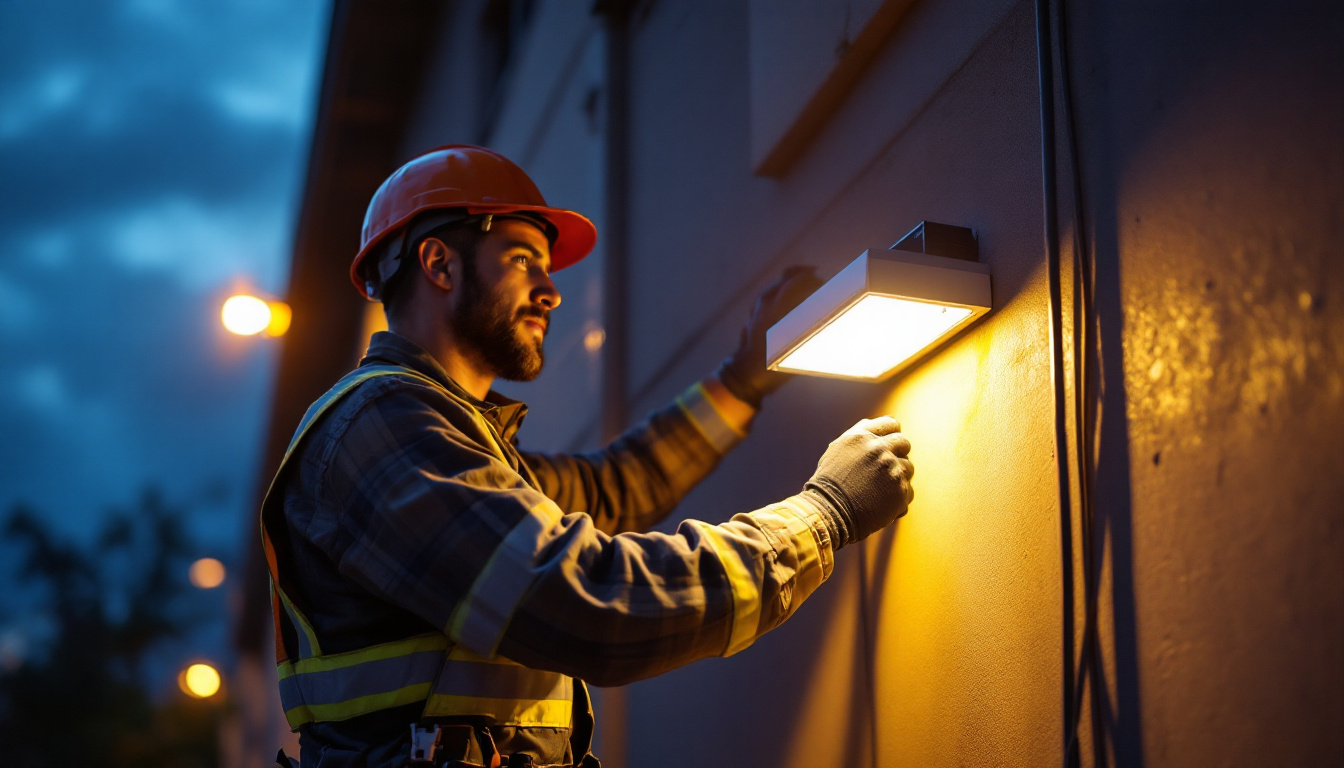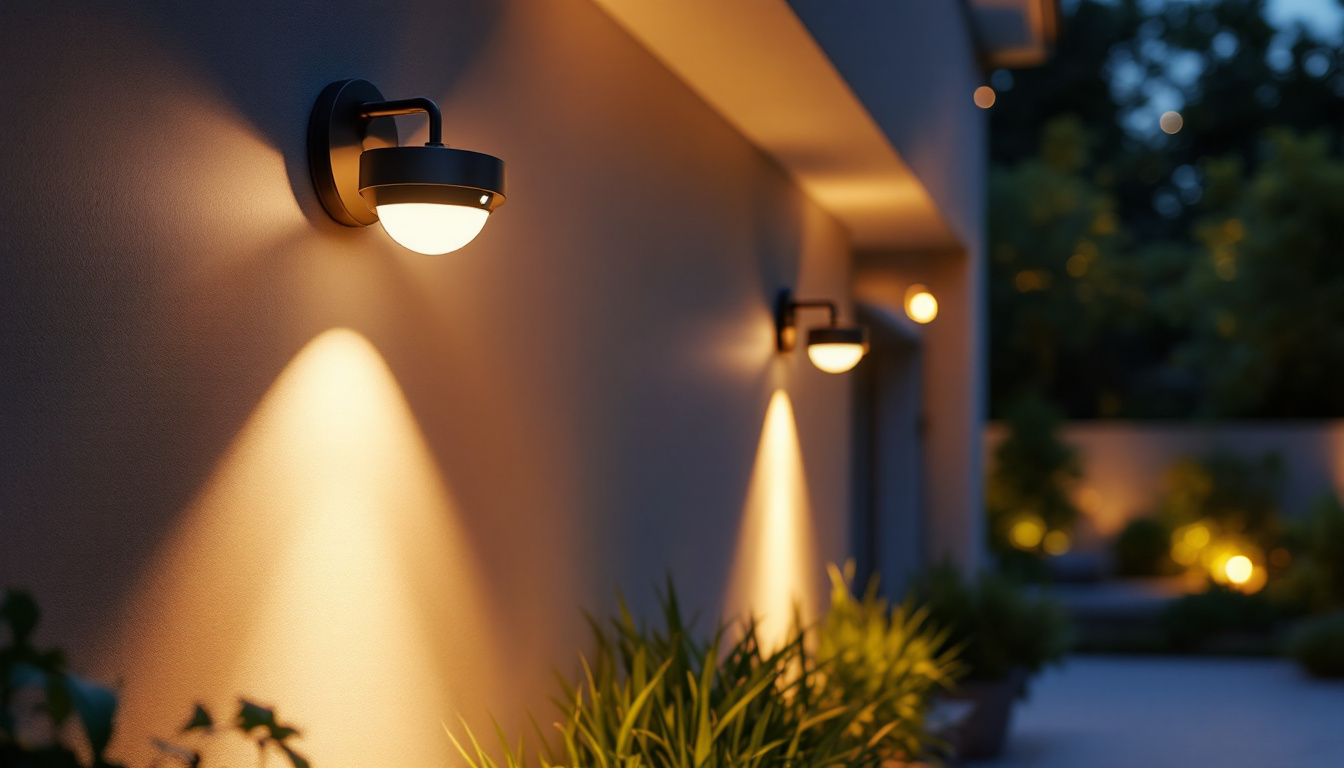
In the world of lighting installation and design, the right tools can make all the difference. For lighting contractors, having access to high-quality equipment not only enhances productivity but also ensures that projects are completed to the highest standards. This article explores the essential tools that every lighting contractor should consider, focusing on their importance, functionality, and how they can contribute to a successful lighting project.
Before diving into the specific tools, it’s crucial to understand the fundamental aspects of lighting installation. Lighting contractors must be well-versed in electrical systems, design principles, and safety regulations. This foundational knowledge informs the selection of tools and equipment, ensuring that each project is executed efficiently and safely. Additionally, understanding different types of lighting—such as ambient, task, and accent lighting—can help contractors create a well-balanced and functional lighting scheme that meets the needs of their clients. This knowledge not only enhances the aesthetic appeal of a space but also ensures that the lighting serves its intended purpose effectively.
Safety should always be a priority for lighting contractors. The installation process often involves working at heights, handling electrical components, and navigating potentially hazardous environments. Essential safety gear includes hard hats, gloves, safety glasses, and fall protection equipment. Investing in high-quality safety gear not only protects the contractor but also instills confidence in clients regarding the professionalism of the work being performed. Furthermore, regular training on safety protocols and emergency procedures is crucial. This ensures that all team members are prepared to handle unexpected situations, such as electrical shocks or falls, thereby minimizing risks on the job site.
Every lighting contractor needs a reliable set of hand tools. These tools are essential for various tasks, from mounting fixtures to making electrical connections. Common hand tools include screwdrivers, pliers, wire strippers, and wrenches. Each tool serves a specific purpose, and having a well-stocked toolbox can significantly streamline the installation process. Additionally, specialized tools like circuit testers and voltage meters are invaluable for troubleshooting and ensuring that installations are up to code. By maintaining a comprehensive toolkit, contractors can adapt to the unique challenges presented by different projects, ultimately leading to higher-quality results.
In addition to hand tools, power tools play a vital role in enhancing efficiency. Drills, saws, and grinders can save time and effort, especially when working on larger projects. For instance, a cordless drill allows for quick installation of fixtures without the hassle of cords, while a reciprocating saw can make precise cuts in various materials. Choosing the right power tools can greatly improve productivity on the job site. Moreover, advancements in technology have led to the development of battery-operated tools that provide the same power as their corded counterparts, offering greater flexibility and mobility. As contractors become more familiar with these tools, they can explore innovative techniques that further streamline their workflow, such as using laser levels for accurate alignment, which can significantly reduce installation time and enhance the overall quality of the work.
Beyond basic hand and power tools, specialized equipment is essential for lighting contractors. These tools are designed to address specific challenges encountered during installation and design. Understanding their functions can help contractors make informed decisions about which tools to invest in. The right tools not only enhance productivity but also contribute to the overall quality of the lighting projects, ensuring that every installation meets the highest standards of safety and aesthetics.
Light meters are invaluable for assessing the quality and intensity of light in a given space. By measuring lumens and foot-candles, contractors can ensure that lighting meets design specifications and client expectations. This tool is particularly useful in commercial settings, where precise lighting levels are crucial for functionality and aesthetics. Additionally, light meters can help contractors troubleshoot existing lighting setups, identifying areas that may be over- or under-lit, which is essential for creating comfortable and productive environments.
Achieving accurate alignment is essential in lighting installation. Laser levels provide a reliable way to ensure that fixtures are installed evenly and at the correct height. These tools project a straight line across surfaces, allowing contractors to make precise measurements and adjustments. The use of laser levels can significantly reduce the time spent on leveling and alignment tasks. Moreover, many modern laser levels come equipped with features such as self-leveling capabilities and multiple projection modes, making them versatile tools for various lighting projects, from simple residential installations to complex commercial designs.
Proper wiring is fundamental to any lighting installation. Tools such as cable cutters, crimping tools, and fish tapes are essential for managing electrical connections. A good set of wire strippers can simplify the process of preparing wires for connections, while fish tapes help navigate wires through walls and ceilings. Investing in quality wire and cable tools ensures a secure and efficient installation. Furthermore, understanding the different types of cables and their applications can enhance a contractor’s ability to select the right materials for each project, thereby improving safety and performance. For instance, knowing when to use low-voltage versus high-voltage wiring can be crucial in outdoor lighting installations, where environmental factors come into play.
In today’s digital age, lighting design software has become an indispensable tool for contractors. These programs allow for the visualization of lighting plans and help in making informed decisions about fixture placement and design aesthetics.
3D modeling software enables contractors to create detailed visual representations of lighting designs. By simulating how light interacts with different surfaces and materials, contractors can experiment with various configurations before installation. This not only aids in client presentations but also helps identify potential issues early in the design process.
Accurate calculations are vital for estimating project costs and determining the number of fixtures needed for a space. Specialized calculators can assist in calculating wattage, lumens, and energy efficiency, ensuring that the final design meets both aesthetic and functional requirements. These tools can save time and reduce errors, leading to more accurate bids and satisfied clients.
Once the lighting installation is complete, testing equipment is crucial for ensuring that everything functions as intended. This phase of the project is essential for identifying any issues that may need to be addressed before the final walkthrough with the client.
Voltage testers are essential for checking electrical connections and ensuring that fixtures are receiving the correct voltage. These tools can help identify faulty wiring or connections that could lead to malfunctions. By using voltage testers, contractors can ensure that installations are safe and compliant with electrical codes.
Continuity testers are used to verify that electrical circuits are complete. This tool is particularly useful for troubleshooting issues in lighting systems. By checking for continuity, contractors can quickly identify breaks in the circuit and address them before the system is powered on. This proactive approach minimizes the risk of electrical failures and enhances overall system reliability.
Effective project management is key to the success of any lighting installation. Tools that assist in planning, scheduling, and communication can streamline the process and improve overall efficiency.
Scheduling software helps contractors manage timelines and allocate resources effectively. By keeping track of project milestones and deadlines, contractors can ensure that installations are completed on time. This tool also facilitates communication with clients and subcontractors, providing everyone with a clear understanding of project timelines.
Collaboration platforms enable teams to share information, documents, and updates in real time. These tools are particularly useful for larger projects involving multiple stakeholders. By fostering open communication and collaboration, contractors can ensure that everyone is on the same page, reducing the likelihood of misunderstandings and delays.
When it comes to tools for lighting contractors, quality matters. Investing in high-quality equipment may require a larger upfront cost, but the long-term benefits far outweigh the initial expense. Durable tools not only perform better but also last longer, reducing the need for frequent replacements.
Choosing tools from reputable brands can provide peace of mind. Established manufacturers often have a track record of producing reliable and effective tools. Researching and reading reviews can help contractors make informed decisions about which brands to trust.
Another factor to consider when investing in tools is the warranty and customer support offered by the manufacturer. A good warranty can protect against defects and provide assurance of quality. Additionally, responsive customer support can be invaluable when troubleshooting issues or seeking guidance on tool usage.
For lighting contractors, the right tools are essential for success. From basic hand tools to specialized equipment, each tool plays a crucial role in the installation process. By investing in quality tools and staying informed about the latest advancements in technology, contractors can enhance their efficiency, improve project outcomes, and ultimately deliver exceptional results to their clients.
As the lighting industry continues to evolve, staying up-to-date with the latest tools and techniques will ensure that contractors remain competitive and capable of meeting the diverse needs of their clients. In a field where precision and professionalism are paramount, the right tools can make all the difference.
Ready to elevate your lighting projects with the best tools in the industry? Look no further than LumenWholesale for all your lighting needs. Our extensive selection of top-quality, spec-grade lighting products comes at unbeatable wholesale prices, ensuring you get the most value for your investment. Say goodbye to local distributor markups and hello to superior lighting products that meet the highest industry standards. Plus, with free shipping on bulk orders, you can stock up on all the essential tools without worrying about hidden fees. Don’t compromise on quality, affordability, or convenience. Wholesale Lighting at the Best Value is just a click away. Make the smart choice with LumenWholesale and light up your projects with confidence.

Discover the essential checklist for lighting contractors working with Wallpack LED systems.

Discover the crucial role of motion detector light fixtures in modern outdoor lighting solutions.

Discover the crucial role of bathroom vanity lighting in enhancing aesthetics and functionality.

Discover the essentials of pot lights in just five minutes with this comprehensive guide tailored for lighting contractors.